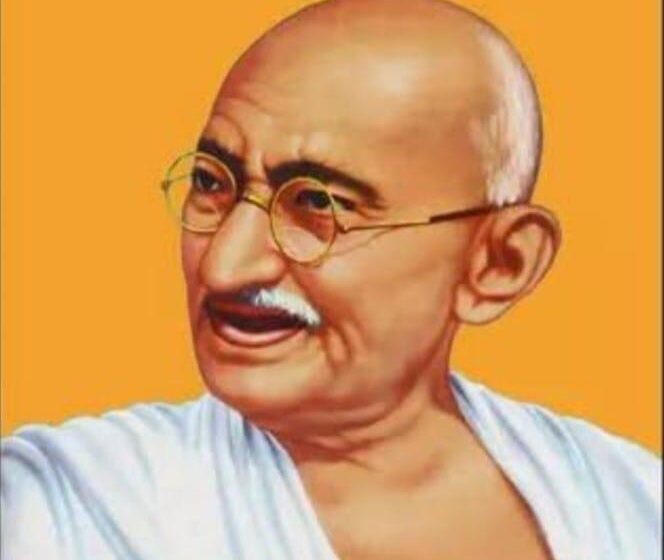Centenary of Mahatma Gandhi’s presidency of Indian National Congress

The historic Congress session on December 26, 1924 presided over by Gandhiji marked a significant milestone in India’s struggle for independence
By Ravindra Garimella
On December 26, 1924 the 39th Session of Indian National Congress was presided over by none other than Mahatma Gandhi as President of the nationalist movement. This historic session was held at Belgaum which was then under Bombay Presidency. Belgaum is now known as Belagavi in Karnataka State. This was the only Congress session presided over by Gandhiji, marking a significant milestone in India’s struggle for independence.
The Belgaum session had significant importance as it aimed to create momentum since Gandhiji’s influence in Belgaum was substantial, contributing to the growth of the nationalist movement in the region. By mid-1920s Belgaum had already established itself as an important center for the freedom movement, with Lokmanya Tilak launching his Home Rule League from the city in 1916.
The Belgaum session of the Indian National Congress firmed-up the city’s place in the annals of India’s struggle for independence. Popular performance activities such as theater and dramas played a crucial role in motivating the volunteers who had assembled at the Congress Camp. The session was made possible due to the sincere efforts of Gangadhar Rao Deshpande, a prominent Congress leader from Karnataka.
Belgaum being chosen as the venue for the session gave the nationalists of the district new impetus. In order to prepare the people psychologically for the forthcoming conference, the hosts of the session organized the staging of patriotic plays. A significant play in this regard was Pavitra Khadi, which is composed by either Shivalinga Swamy Chikody or Vishnu Shastri. As the name indicates, the content of the play highlighted the use of Khadi, one of the basic tenants of Gandhian thought.
Nationalist plays on the lives of Kittur Channamma and Sangolli Rayanna were also staged at the Congress camp, and proved to be extremely popular among the masses. These plays inspired resentment against the state of of enslavement that the British had reduced India to and encouraged the audience to envision freedom and liberty. The staging of nationalist plays encouraged more people to participate in the Congress and helped prepare the ideal intellectual environment for the nationalist movement.
READ: Mahatma Gandhi Day celebrated in Hawaii (October 14, 2024)
During this session, several key resolutions were adopted. One of the main resolutions was the emphasis on non-cooperation and civil disobedience as the primary means of resistance against British rule. The session also saw a renewed focus on the promotion of Swadeshi and the boycott of foreign goods.
Gandhiji’s presidency at the Belgaum session was a significant moment in his career, as he emphasized the importance of non-violent resistance and self-reliance. In his presidential address,Gandhiji stressed the need for unity and discipline within the Congress ranks. He also reiterated his commitment to the cause of Indian independence and the importance of sacrifice and selfless service.
The Belgaum session was attended by several prominent Congress leaders, including Sardar Vallabhbhai Patel, Jawaharlal Nehru, and C. Rajagopalachari. The session marked a significant turning point in the Indian independence movement, as it set the stage for the mass civil disobedience movements of the 1930s.
READ: New Mahatma Gandhi statue unveiled in New York (January 24, 2024)
To commemorate this watershed moment in the Indian history, an extended Congress Working Committee meeting is being held at the same venue at Belagavi at the same time — 3 pm as in 1924 — on December 26, 2024.
(Ravindra Garimella, a seasoned parliamentary officer with over 30 years of experience in India’s Lok Sabha Secretariat, is a historian of Indian parliament and author of “Parliament of India: Diverse Dimensions”)
ALSO READ: 1000 Lights for Peace: Eternal Gandhi Museum celebrates Gandhi Jayanti (October 15, 2024)
READ MORE: When Mahatma and the Quaid visit South Asia in 2023 (October 31, 2023)
